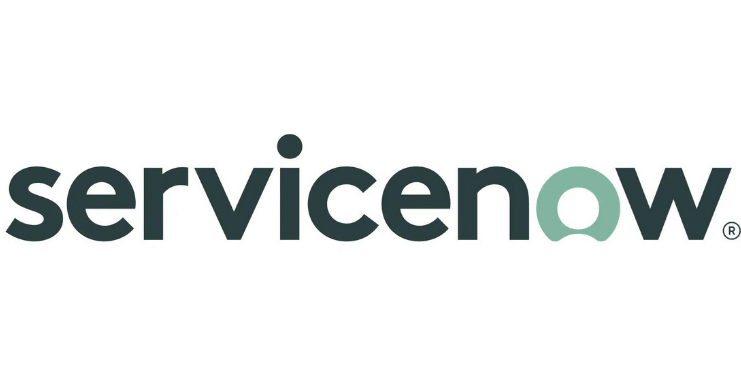KEY INSIGHTS
- ServiceNow is investing $1 million into Benedict College
- The company is aiming to attract, recruit and retain diverse talent by providing resources, training and mentorship to Benedict students
- The partnership will include scholarships, a new computer lab and curriculum development
ServiceNow, a California-based workflow software company, is investing $1 million into scholarships, a new computer lab and curriculum development, and is creating a new five-year partnership with the aim to attract, recruit and retain diverse talent from South Carolina’s Benedict College and other HBCUs.
“People looked around and recognized that there were very few people of color in certain industries, spaces and places,” Roslyn Artis, president of Benedict College, told The Plug. “And so as you look for diverse talent, the most logical place to start is on the campus of our nation’s HBCUs.”
The company’s partnership with Benedict started last year when ServiceNow began efforts to recruit from more HBCUs. After working with a few other HBCUs like North Carolina A&T State University and Florida A&M University, ServiceNow had the most success with Benedict — all the Benedict students that interned at ServiceNow last year got return offers for a second year.
“We’re desperate for Benedict College talent, and as long as they can keep graduating kids, we can keep hiring them and going from there,” Cheick Camara, Senior Director of Platform Engineering Strategy and Operations at ServiceNow, told The Plug.
In 2020, only 2.7 percent of ServiceNow’s workforce was Black or African American, according to the company’s diversity data, falling far short of the 13 percent share of the US labor force Black people constitute.
The ServiceNow-Benedict partnership has four key components. ServiceNow will build a new computer lab with state-of-the-art devices, software and network infrastructure.
In addition, ServiceNow will give merit-based scholarships to five Benedict students, up to $12,000 a year, for the next five years. Scholarship recipients will also be a part of the new Scholars Program, which will go beyond just Benedict students and be open to other HBCU students in South Carolina.
As part of the Scholars Program, ServiceNow employees will partner with students and faculty to ensure students are ready for careers in tech. The company will advise on everything from how the curriculum is developed, to how students are trained and even how early they are taught specific software.
ServiceNow’s investment is not limited just to current students. The company is also establishing the NextGen Academy at Benedict, which will allow HBCU students and recent graduates from across South Carolina to go through a two-month training on the ServiceNow platforms. Camara said 80 percent of people that graduate from the NextGen academy have been able to get jobs in tech.
Tech and HBCUs
ServiceNow’s partnership with Benedict comes as other tech companies also turn to HBCUs as sources of diverse talent.
Apple has invested millions of dollars in giving new Apple technology and learning resources to teach coding to nearly half of all HBCUs through their HBCU C2 initiative. The tech giant has also created an internship pipeline for HBCU students who go through the full iOS app coding curriculum.
Research shows that Black students who go to an HBCU are more likely to graduate with a STEM degree than those who attend a non-HBCU or PWI, further, for the tech industry to follow through on the diversity commitments made after the murder of George Floyd, many have turned to HBCUs.
But Artis said some of the attention after Floyd’s murder was just in the moment.
“There was some reactionary funding and support that went to HBCUs in that moment, but investments are different than donations,” Artis explained.
“What ServiceNow has done is create something that is tangible, that is sustainable, long into the future,” she said.
Future impact of the partnership
The program is expected to fully launch in mid-2022. Ultimately, ServiceNow’s goal is to recruit and retain diverse talent, so the company will be measuring the success of the partnership through how many students they have hired from Benedict, how many have been retrained through the NextGen Academy and, overall, how many students are influenced by ServiceNow’s presence on Benedict’s campus.
For Artis, she will measure the partnership’s success through participation, engagement, completion and placement. She hopes the partnership will spark more students to be interested in tech, that it increases graduation rates from computer science and other STEM fields and that it places more students in jobs.
“We want to see them go right into the tech industry at a relatively high rate, not making coffee and copies, but really doing some app development design and applying the hard skills,” Artis said.
Artis also thinks the model of the partnership will have lasting impacts on HBCUs in general, not just at Benedict.
“That partnership-investment is really the kind of philanthropy that I think represents the future of philanthropy and will certainly build tremendous capacity on the campuses of HBCUs,” Artis said.
Camara said there are about 200 engineering interns a year and in the future he would like a good percentage of them to be from Benedict, adding that the partnership is also about something bigger than specific recruiting metrics.
“I’m raising three Black kids and I want the workforce to be a lot more diverse for when they get into tech. Ninety-nine percent of my career, I was the only Black man in the room,” Camara said. “So to me it’s personal because by the time my daughter gets to the age where she wants to work, I want the workforce to be a lot more diverse.”








